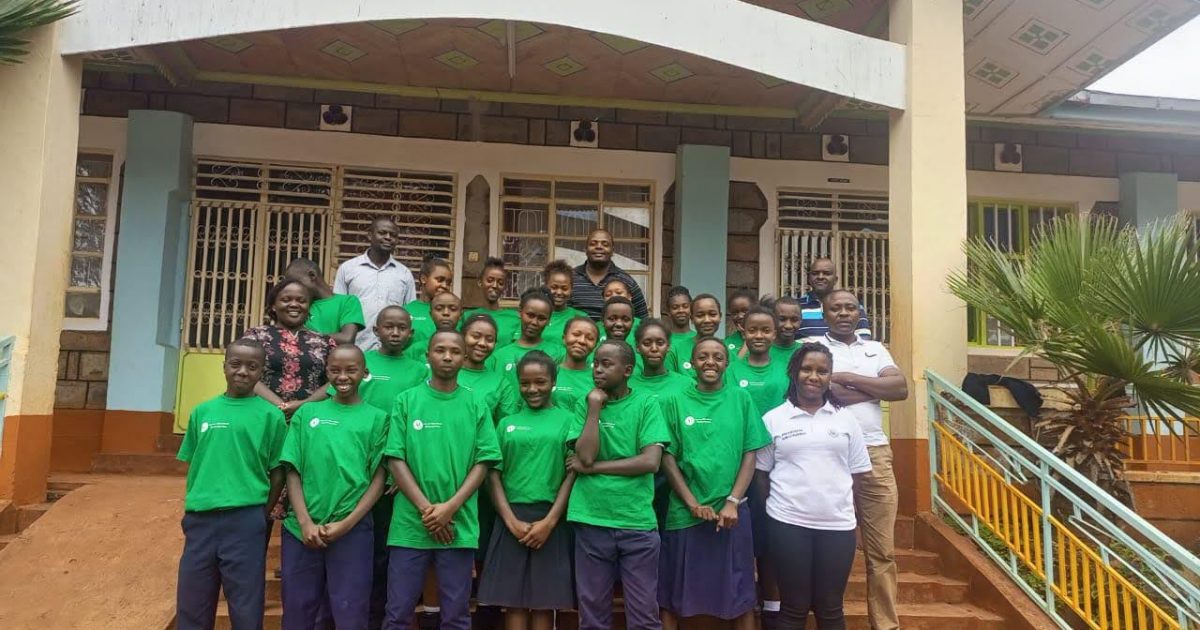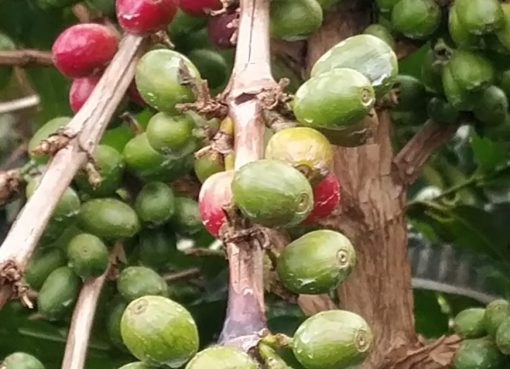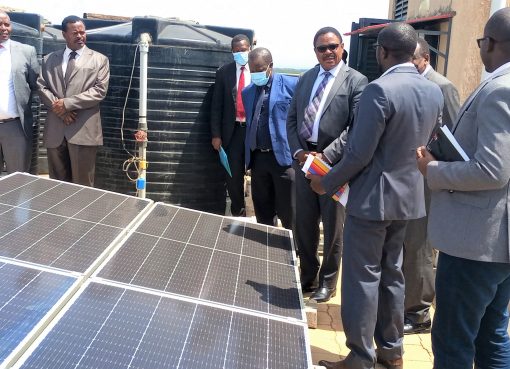Over the past one year, the Principal of Mananga Secondary School in Mathioya Sub county in Murang’a, Joseph Muigai appreciates a positive change among his students’ behavior and attitude since the introduction of Tuseme club programme in his school.
Muigai observes the club has proven to be an effective strategy that enables young girls and boys to identify and analyse emergent issues affecting girls, especially teenage pregnancy, to speak out about such issues, and to take action to solve them.
On Wednesday, Muigai narrated to KNA that since the club’s launch in April last year, the school has seen the value of the club because of the ability of the pupil’s to analyse situations, make correct decisions and speak out on situations that negatively affect their welfare, has been significantly enhanced.
“Tuseme Club in Mananga Secondary school is impacting the lives of young girls and boys and encouraging them to speak out against the issues that are affecting them and to take action to solve them,” he sai
Named after the Swahili word “Tuseme,” meaning “let’s speak out,” Tuseme Club is being implemented by Forum for African Women Educationalists (FAWE) under the Imarisha Msichana programme, funded by MasterCard Foundation.
The club empowers young girls and boys to speak out against the gender-based challenges they face that can be significant barriers to their education like teen pregnancy, sexual gender based violence and HIV.
The Principal said the club advocates against teenage pregnancies, child marriage and other retrogressive cultural practices that happen within the community setups by equipping girls and boys with the knowledge and skills to grow and effectively participate in their society.
“Girls and boys are able to identify and analyse the emergent problems in school like teen pregnancy, sexual gender based violence among others and how they hinder their academic and social development,” he said.
Muigai divulged that through the guidance of the club patrons, the students also learn about life skills training that empowers them to deal with gender-based impediments to education and self-development within and outside the school environment.
“The training includes building self-confidence and esteem, speaking out, decision making, assertiveness, negotiation, leadership and self-control,” he said adding that the club has a total of 54 students. Of which 38 are girls and the rest boys.
He further said the Tuseme club is also used to empower other boys and girls in the school to understand their unequal gender positioning, and the need to support and accept gender equality as a human right.
“The club teaches the boys on their role when it comes to championing girls’ rights and reducing the cases of teenage pregnancies,” he said adding that out of the school’s population of 315 pupils, 174 are boys.
He lauded FAWE Kenya for selecting Mananga Secondary school as one of the 8 schools in Murang’a county that is benefiting from the programme.
Teresia Waithaka, Tuseme club patron said the club is an empowerment process designed to enable girls and boys to understand the gender construct of the society they live in including teen pregnancy, sexual gender based violence, boy- girl relationships among others.
Waithaka, also a teacher at the school, said that the students translate the problems they have identified and analysed, as well as the solutions, into a theatre performance.
“Tuseme empowerment process uses the theatre for development approach, which exposes participatory methodologies and gives a voice to the girls and boys to express themselves,” she said.
She divulged that the students themselves identify the theatrical forms they are most familiar with, and the ones that they want to use to communicate their views on the identified problems.
“Some of the artistic forms they use in theatrical performance include drama, dance, song, storytelling, rap, poetry, and recitations,” she said, adding that the club also performs to the other students and also parents during parents’ meetings.
On his part, Evan Githaka, another Tuseme club patron said since the start of the club, they have seen a positive impact in the behavioral habits of the girls and boys.
“Positive attitude is the key to excellence. We encourage our students to speak out against harmful cultural practice,” he said, adding that teachers open the door to success but the pupils must enter themselves.
He said that the school through the programme has received computer desktops and internet connectivity which has enabled the students to become computer literate.
FAWE Kenya Murang’a County coordinator Pauline Masese said the introduction and formation of Tuseme Clubs is one of the key interventions where the learners will get to learn about human sexuality, share about issues affecting them and also come up with solutions that will help end the problems they face.
Masese said the club presents an opportunity for the students to bring out their creativity, to use their cultural heritage or the theatrical expressions in their community and to speak out.
“Through the guidance of the patrons, the students learn about life skills training that empower them to deal with gender-based impediments to education and self-development within and outside the school environment,” she said.
She noted that since the inception of Tuseme Clubs in the year 2022, the programme has established 160 clubs in selected schools across 20 counties in Kenya.
“Eight-mapped schools have been selected in each of the 20 counties where the programme is being implemented,” she said, adding that students are also gaining knowledge on effective peer leadership skills within the clubs in their respective schools.
The Tuseme Club model is implemented under the Imarisha Msichana programme, a partnership between FAWE and MasterCard Foundation. The programme, funded by MasterCard Foundation aims at significantly reducing teenage pregnancy in Kenya as a major barrier to adolescent girls and young women’s participation in quality education.
The programme is being implemented in 20 counties of ; Nakuru, Nairobi, Machakos, Elgeyo Marakwet, Kiambu, Garissa, Bungoma, Kakamega, Nyeri, Migori, Murang’a, Kajiado, Narok, Homa-Bay, Trans-Nzoia, Nyandarua, Busia, Meru, Siaya, and Turkana.
By Anita Omwenga





